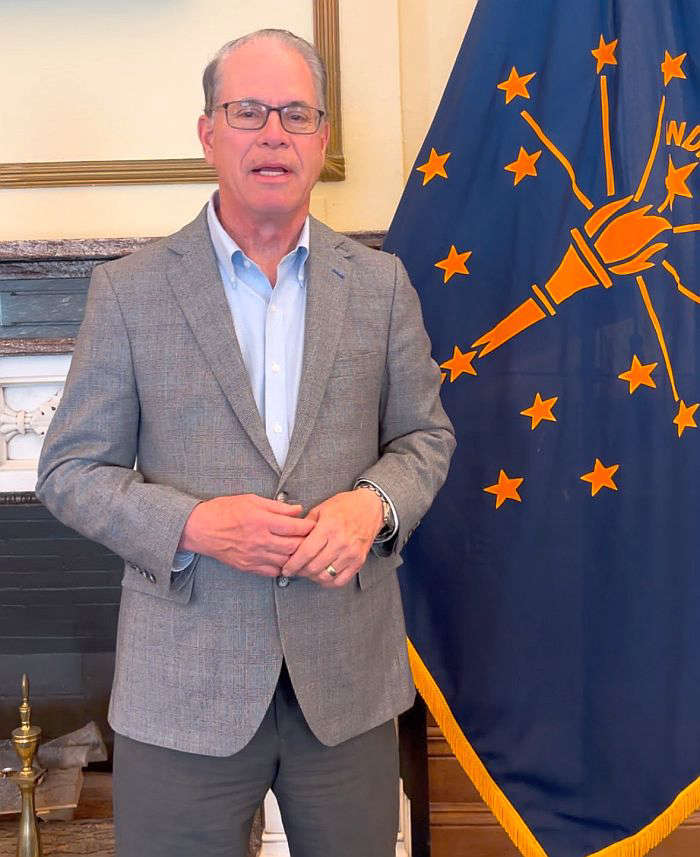
There was a good turnout for the Special School Board meeting on redistricting in Plymouth on Tuesday.
Superintendent Mitch Mawhorter welcomed all who attended, and this time offered the presentation in English and Spanish with a couple of interpreters.
The superintendent explained that a Redistricting Committee has been working on finding the best solution for the project. Committee members include the superintendent, assistant superintendent Jill VanDriessche, and principals Angie Mills, Brooke Busse, Ryan Welch, and Christy Haupert. Ana Exiga migrant liaison assistant and Norma Rodriquez the ENL Family Services Coordinator are on the committee along with school board president Allie Shook, school attorney Jeff Houin, Brandon Berger Director of Transportation, Director of Safety and Security Ted Brown, Plymouth Education Association President, teacher, and parent Laura Kruyer and Jerry McKibben outside consultant.
Superintendent Mawhorter explained the reasons for the redistricting project. First, they are planning to offer preschool in all four elementary schools. Secondly, they want to have a planned, consistent curriculum in all four elementary schools. Thirdly, the corporation wants collaboration and sharing among each building to create the best outcome for the students, and they are already working to make each elementary school STEM Certified.
The Plymouth School Corporation is rethinking how they bus students. Mawhorter told the crowd that instruction time is lost due to start and end times at each elementary school. Students are on buses for up to 90 minutes one way, the cost of having nearly all 29 buses stop at each school in the corporation is high and staffing continues to be a challenge.
After the February meeting where McKibben presented two options, the committee began work on a third option that meets more of their goals but still poses challenges. The committee looked at the first two options from a safe walking route for a 5-year-old as their starting point. The new walking zones are still a distance of up to 1 mile from each building, but they used railroad tracks as a point to keep students away from. They also worked for the minimal crossing of Michigan and Jefferson Streets and worked for a balance of economics and diversity.
Mawhorter discussed what the committee liked about Option 3. He said Option 3 is safer compared to Options 1 & 2 and safer than their current operation. It also allows the corporation to efficiently use their buses to transport students in one area and to their buildings on time with less ride time. Option 3 also starts the process of balancing the enrollment at each of the four elementary schools and allowing for future preschool at each one.
Option three isn’t without challenges. Jefferson Elementary is projected to have a smaller enrollment which will cause more out-of-the-district transfer-in students to attend there. It will also cause the school corporation to work with the city to develop new crossing areas for safety.
The plan for the next school year is to have buses only transport students in the area assigned to each elementary on the Option 3 map. Parents who choose to send their students out of their neighborhood district will be allowed to stay but must provide their own transportation. Mawhorter said Choice school must have continuous enrollment in the K-4, which means a sibling must be attending a school of choice for a younger sibling to be able to attend. First-time families will not be given the option to attend a school outside their boundaries. The superintendent said blended families will have to select the district school using parent A’s or parent B’s address.
Plymouth buses will only transport within the assigned district area so if your babysitter is outside your school district you or your babysitter will have to provide transportation.
Superintendent Mawhorter told those attending the meeting this will be the process for next year although they deserve the right to make changes if something isn’t working. He said, “The idea is to work our way out of interschool transferring over time,” and closed his comments by saying, “This didn’t happen overnight, and we won’t be able to fix it overnight.”
They then opened the floor for comments.


 Board of Public Works & Safety confronted on VanVactor Drive name change, asked to change it back
Board of Public Works & Safety confronted on VanVactor Drive name change, asked to change it back
 County Police arrest Grand Rapids man for driving without a license
County Police arrest Grand Rapids man for driving without a license
 66-year-old Plymouth man arrested for intentionally driving without a license
66-year-old Plymouth man arrested for intentionally driving without a license
 Bourbon teen arrested, driving 102 MPH on U.S. 30
Bourbon teen arrested, driving 102 MPH on U.S. 30
 Marshall County Communiity Foundation awards spring 2025 grants
Marshall County Communiity Foundation awards spring 2025 grants
 Become a lifesaving volunteer by giving blood with the Red Cross
Become a lifesaving volunteer by giving blood with the Red Cross
 Motorists: stay alert and share the road with farm equipment this spring
Motorists: stay alert and share the road with farm equipment this spring
 Governor Braun Announces Partnership between Indiana Excise Police, Indiana State Police to crack down on crime involving ‘nuisance bars’
Governor Braun Announces Partnership between Indiana Excise Police, Indiana State Police to crack down on crime involving ‘nuisance bars’




